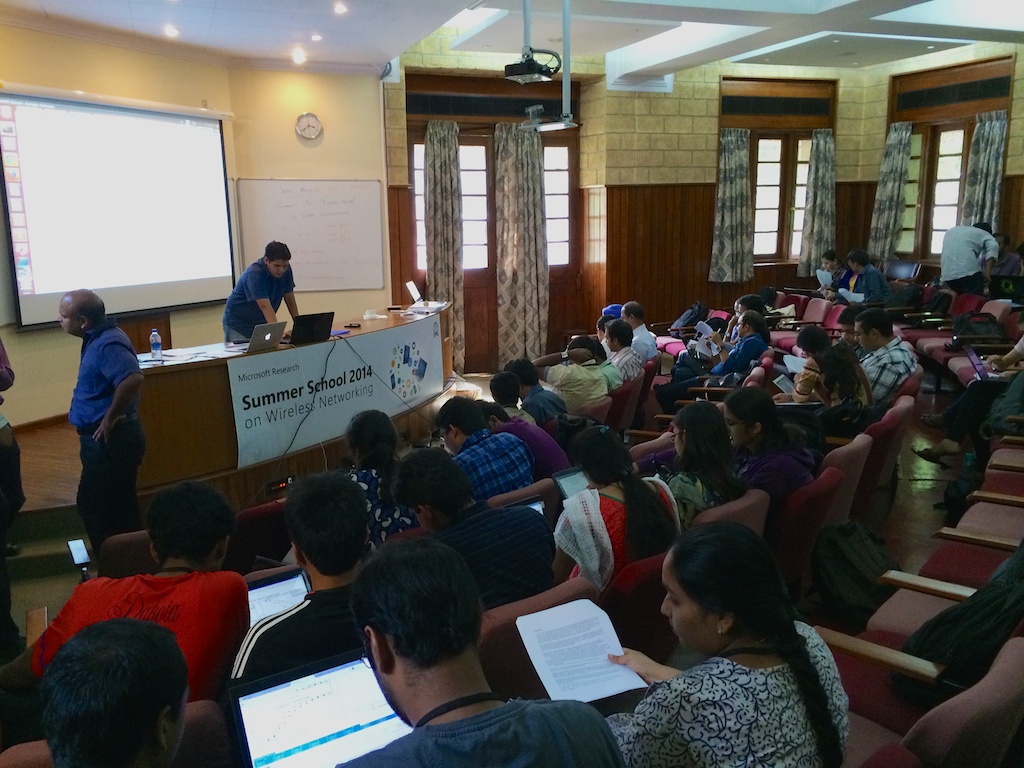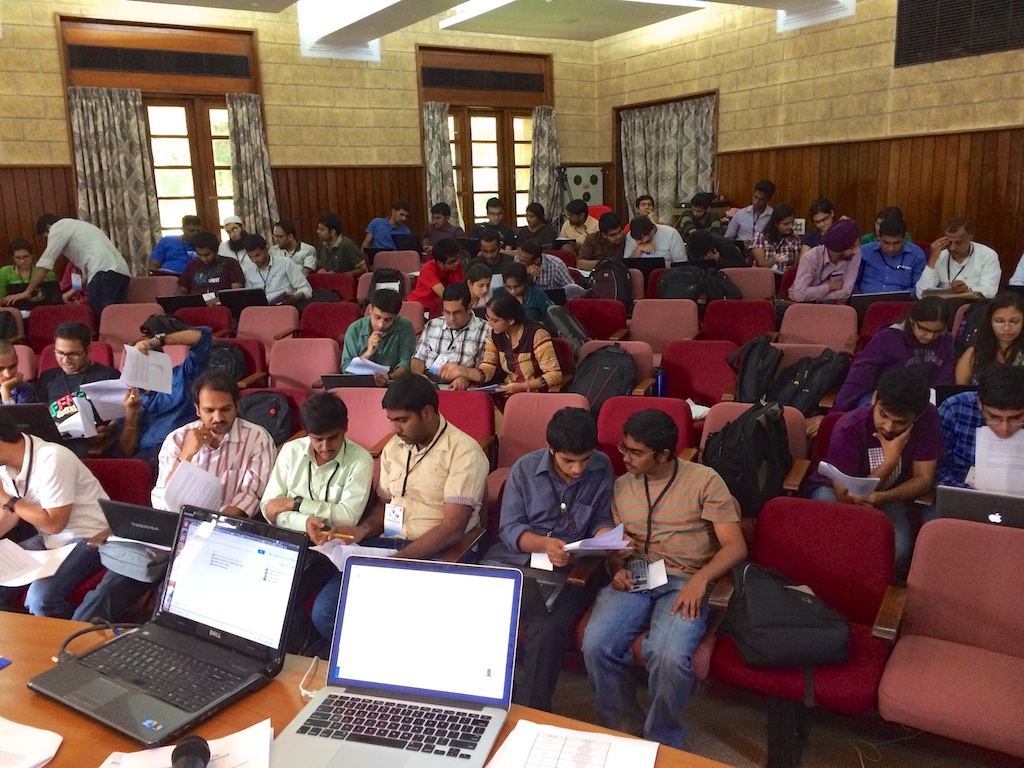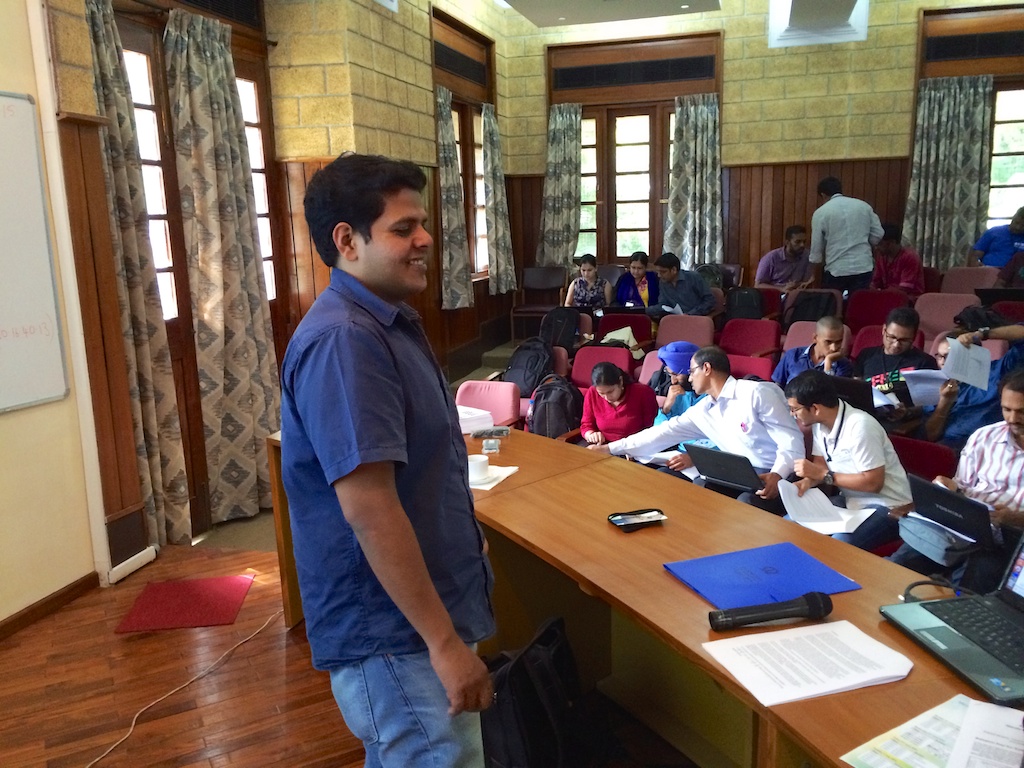WARP Featured in MSR Summer School 2014
Focusing on the latest advances in wireless networking, Microsoft Research held a summer school for undergraduate students, graduate students, faculty, and other researchers at the Indian Institute of Science in Bangalore. For over a week, summer school attendees were exposed to exciting new topics in wireless communications such as full-duplex communication, user cooperation, and white space networks. To teach the school, Microsoft Research invited top faculty from around the world who are well-known for their pioneering work in these areas. Included in the list of faculty is Ashu Sabharwal, the founder of the WARP project.

| |
 | 
|
The summer school included an a 2-day experimental component on WARP. During this time, students introduced to real-world implementation challenges in 4 different topics:
- Multiple Antenna Communication (MIMO) - Students used WARP to empirically measure the impact of multiple antennas on a wireless link. Students compared transmit diversity and receive diversity and observed how these concepts affect both throughput and error rates.
- Multi-node Interference - Using the Mango 802.11 Reference Design, students explored the role of the 802.11 Distributed Coordination Function (DCF) in splitting medium access among competing nodes. Students were able to make changes to the 802.11 design that go beyond the scope of the standard and witness how those changes affect fairness in the network.
- Cooperative Communications - Cooperative communications is a way of enabling MIMO-like improvements in networks where devices are limited to a single antenna. It accomplishes these improvements by letting multiple devices act like virtual antennas for other devices, effectively combining their resources for potentially dramatic improvements in error rates and throughput. Students were able to test this concept and begin to understand user cooperation's important, subtle, and occasionally detrimental implications on energy efficiency.
- Full-Duplex Communications - Students completed the experimental component of the summer school by exploring concepts in full-duplex. They explored full-duplex's tradeoff between potentially 2x throughput at the cost of higher interference. They found regimes where full-duplex is a net "win" over half-duplex, and they also found regimes where half-duplex is actually superior.
All of the above experiments were enabled remotely via Internet access to a bank of WARP hardware hosted at Mango Communications in Houston, TX. Students were able to submit their experiments and retrieve the results of their experiments through a web page. This allowed the summer school to scale to many participants with a limited number of WARP v3 boards.
The above video shows a timelapse of the WARP v3 hardware hosted at Mango Communications over the 2-day period. The screen visible in the video shows the current number of trials submitted by the students of the summer school to the WARP testbed.
More Information
Attachments (3)
- IMG_1833.jpg (274.9 KB) - added by chunter 10 years ago.
- IMG_1826.jpg (332.3 KB) - added by chunter 10 years ago.
- IMG_1828.jpg (312.1 KB) - added by chunter 10 years ago.
Download all attachments as: .zip